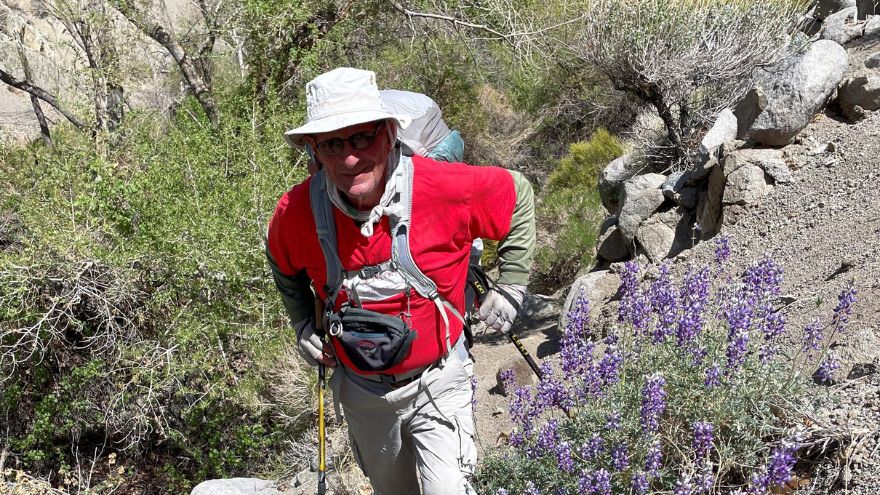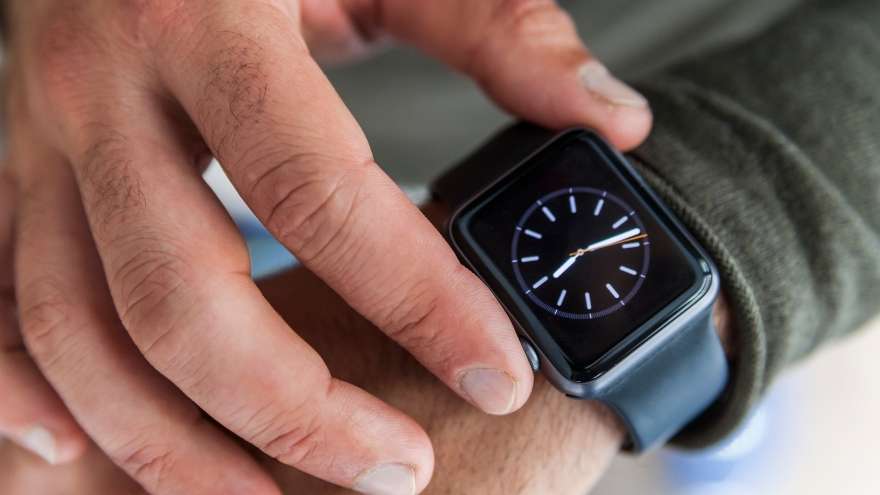Buscar
-
Managing Your Uncontrolled High Blood Pressure
Renown Health, the region's leading cardiology care provider, is offering a clinical trial for eligible patients struggling to control their high blood pressure. Nearly half of adults (119.9 million) in the United States have hypertension, or blood pressure that is higher than normal. Hypertension can put you at risk of other life-threatening disease, such as a heart attack or stroke. There are methods that cardiologists use to manage high blood pressure, but only 1 in 4 adults with hypertension (27.0 million) have their blood pressure under control.* Some patients with high blood pressure experience resistant hypertension, which does not respond well to multiple antihypertensive medications given at the same time. This means that there are many important opportunities for healthcare professionals to explore new ways to treat hypertension. At Renown Health, we lead the region in cardiology care with our technological expertise and patient-centered approach. That is why our cardiology team is partnering with the Renown Research Office to offer the RADIANCE Continued Access Protocol (RADIENCE CAP) clinical trial to eligible patients. RADIANCE CAP is a non-randomized study designed to allow for continued access to ultrasound renal denervation therapy via the Paradise System, and to allow for the on-going collection of safety and effectiveness data in patients with uncontrolled hypertension despite the prescription of antihypertensive medications. The body’s complex communication system between the brain, heart and kidneys can sometimes become overactive, increasing your blood pressure through messages in the nervous system. Renal denervation is a minimally-invasive procedure which reduces activity from the nerves in your kidneys to lower blood pressure. This is the third in a series of renal denervation clinical trials Renown Health has offered to patients with resistant hypertension over the last several years, with over 40 local participants. “All the participants that I have had the pleasure to work with on these studies are very excited and grateful to have this option for helping control their blood pressure” states Lisa English, Lead Clinical Research Coordinator for Cardiology studies at Renown Health. “I love getting to know each one of them and helping on their healthcare journey. We have an amazing team of providers and staff at Renown that go out of their way to make patients experiences positive and the studies successful.” Dr. Michael Bloch, Cardiologist and Principal Investigator for the RADIANCE CAP study at Renown Health’s Institute for Heart and Vascular Health adds, “Despite lifestyle modifications like diet and exercise and the widespread availability of effective and well-tolerated medications, approximately 50% of all people with hypertension have inadequate blood pressure control putting them at risk for stroke, heart failure and kidney disease. As a one-time durable procedure, renal denervation with the Paradise endovascular system from ReCor Medical, Inc. may help millions of patients improve their blood pressure control without necessarily needing to increase their medications.” Our teams of expert providers and researchers are here to support you on your healthcare journey. Talk to your provider about the RADIANCE CAP clinical trial at your next appointment to see if participation may be right for you.
Read More About Managing Your Uncontrolled High Blood Pressure
-
Hiking Through Life After TAVR
Renown Health patient, Alden Nash, hiking Death Valley National Park just three months after a Transcatheter Aortic Valve Replacement. Alden Nash isn’t your average 80-year-old. For much of his life, he could be found outdoors enjoying nature and hiking some of the west coast’s highest elevations. A husband and father of two, Alden turned his passion into a career as a Yellowstone park ranger in 1965. Alden believes his passion for the outdoors is responsible for his many years of health – until the unavoidable happened. The Hardest Climb The number one doctor recommendation for a healthy heart – lead a healthy, active lifestyle. Any cardiologist would be thrilled to have Alden as a patient due to his robust physical activity regimen. “Don’t have a TV set or a lounge chair in your house and you’re all set,” said Alden when asked how he has remained so fit throughout his senior years. Unfortunately, many other factors come into play when it comes to heart health, one of which is the reason we are telling Alden’s story today. Familial history - it’s a hot topic in the world of medicine. Understanding your genetic risk factors can help care providers develop updated care plans based on your results. Alden’s family has a long history of high cholesterol, which he avoided for much of his life by staying active. This combined with his age resulted in his first heart attack in December 2021. Doctors later determined that Alden was suffering from a type of heart valve disease known as aortic valve stenosis. Aortic stenosis is the narrowing of your aortic valve opening that impedes normal blood flow. Over time, the leaflets of your aortic valve become stiff, reducing their ability to fully open and close. When the leaflets don’t fully open, your heart must work harder to push blood through the aortic valve of your body. Eventually, your heart gets weaker, increasing the risk of heart failure. People who are most at risk for aortic stenosis include those who have had certain heart conditions present at birth, have chronic kidney disease or have heart disease risk factors such as high cholesterol and high blood pressure. However, generally, aortic stenosis is a degenerative process of aging with no modifiable risk factors. The incidence of aortic stenosis increases rapidly with age and is very common above the age of 80 – with 1/10 having the condition and 1/50 with a problem severe enough to warrant surgery. When symptoms are present, the disease can be rapidly disabling or even deadly, often progressing over several months unless treated.
-
Smart Watch Notification Saves a Life
In sailing, when you encounter rough seas, you can’t change the wind pattern, but you can adjust your sails. The same rings true for life. We confront unpredictable circumstances daily, but how we react to them can make all the difference. For Renown patient and avid sailor Robert (Dan) Seifers, recent events make this mantra reign true. A Concerning Alert Monday, Aug. 22, started out just like any other day for Dan. He was on a walk with his dog, enjoying the sunshine, when suddenly he felt a wave of dizziness and a buzz on his wrist. His Apple Watch alerted him that his heart rate had dropped to dangerous levels. Returning home immediately, he notified his wife, Carol. Doing their best not to panic, the couple confirmed the reading with their at-home blood pressure machine. The watch was right – Dan’s heart rate was in the low 30s. After taking some time to see if Dan’s heart rate would return to normal, the couple decided it was time he sought medical help. Conveniently, Carol had a lab appointment scheduled next door to Dan’s primary care physician, Dr. Bonnie Ferrara. The couple headed out the door, not realizing what the rest of the day would bring. The Next 48 Hours Upon arrival at the office, Dan calmly approached the front desk to explain his situation. With no delay, staff members sprang into action, quickly showing Dan to a patient room and notifying Dr. Ferrara. Before he knew it, Dan was receiving an electrocardiogram (EKG). Following a review of the results, Dr. Ferrara returned to let Dan know he needed to get to the hospital immediately. The rest of the afternoon moved quickly for the couple. Dr. Ferrara had already notified the Renown Regional Medical Center Emergency Room staff, who were on standby for the couple’s arrival. “Gee, this must be serious,” thought Dan, who at the time was experiencing no other alarming symptoms other than the low heart rate indicated on his watch. Several doctors and nurses began their analysis, including a chest x-ray, blood test and additional EKG. Confirming Dr. Ferrara’s results, a Renown cardiologists, Dr. Christopher Rowan and Dr. Shining Sun, joined Dan’s care team. Within two hours of checking into the hospital, Dan was admitted, monitored overnight and prepped for surgery to receive a pacemaker the next day. Tracking Your Heart Health Following the purchase of their Apple Watch devices, Dan and Carol were unaware of these heart health features. Like many others, they were looking forward to the next best tech gadget that would help them stay connected with their friends and family. Now, the couple says they will use their experience to spread the word about the importance of ensuring these settings are enabled. According to Apple, you can turn on these notifications from the Heart Rate app on your Apple Watch (Series 1 or later) to alert you to high or low heart rates and irregular heart rhythms. If you receive a notification, an irregular rhythm suggestive of atrial fibrillation (A-Fib) or a low or high heart rate has been identified and confirmed with multiple readings. In Dan’s case, the signal from his watch was the result of a heart block, a condition where the electrical signal that controls your heartbeat is partially or completely blocked. Dizziness and low heart rate are common symptoms of a heart block. But this was not the first time the couple had experienced this type of alert from their watch. More than a year and half ago, Carol’s watch notified her of an irregular heart rhythm that was suggestive of A-Fib. She immediately made an appointment with Dr. Danish Atwal, the lead cardiologist at Renown’s Helaine Greenberg Women's Heart Center. Thanks to medication prescribed by Dr. Atwal, Carol now lives a healthy, active life while managing her A-Fib, continuing to wear her Apple Watch, which can also help track her A-Fib History. “I’ll share our story with anyone who will listen and encourage them to get a smart watch. I consider myself an unofficial spokesperson,” said Carol with a chuckle. A Thankful Heart The Senior Care Plus members could not be more amazed at the way Dan was treated by the staff at Renown. “I wish I could personally thank them all. I will highly recommend Renown to all I come in contact with,” said Dan with his Apple Watch still proudly strapped to his wrist. “I was closely monitored and treated like royalty.” Quick action to medical emergencies like Dan’s is just one of the many reasons why collaboration is part of our four key values at Renown. The open line of communication between our primary care facilities and hospitals helped Dan get the prompt care he needed, right when he needed it. A month post-op, Dan is doing well and back to enjoying the things he loves during his retirement, including playing the harmonica in the Grumpy Old Man Band, exploring the northern Nevada backroads in his jeep and working on his swing at the golf course. Dan can rest assured that while enjoying the winds of life, if his heart begins to beat too slowly again, the pacemaker will send a signal to correct the beat. “The prompt attention to my heart block undoubtedly saved my life,” said Dan in what he calls his 6-star review of Renown Health. “Thank you from the bottom of my heart, which is happily beating at 60 beats per minute.” This article is not sponsored by or affiliated with Apple, Inc. For more information on the Apple Watch and it's features, visit apple.com.


